Infrastructure Construction
Infrastructure construction is vital to Lincolnshire’s growth and connectivity, underpinning the county’s economy and improving quality of life for its residents. From building roads and bridges to developing railways and utilities, this sector delivers essential projects that keep communities and businesses moving.
With a strong focus on innovation, sustainability, and collaboration, infrastructure construction in Lincolnshire offers diverse opportunities for professionals passionate about shaping the future.
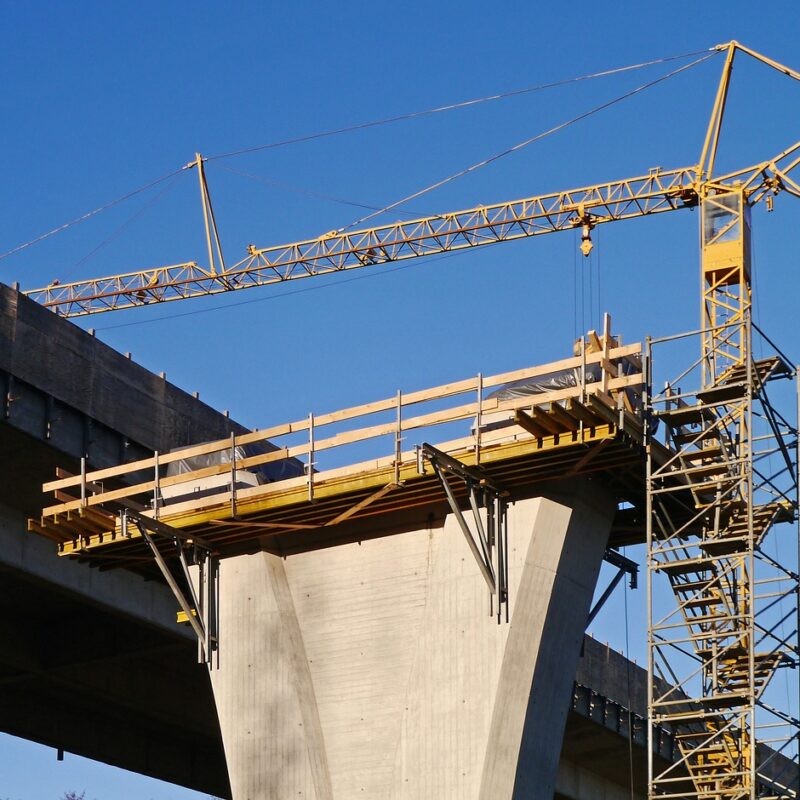
The sub-sector is categorised into four key areas:
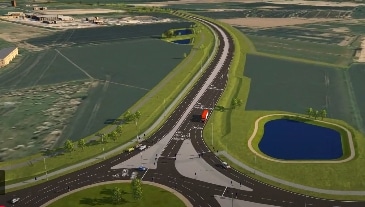
Roads
Road construction is the foundation of Lincolnshire’s transport network, connecting urban areas, villages, and rural communities. Whether creating new bypasses, upgrading major routes, or maintaining local roads, this area ensures smooth and efficient travel across the county.
Projects often require large-scale planning and precise execution, incorporating advanced technologies like sustainable materials and smart traffic management systems. From motorways to minor roads, every project plays a role in enhancing accessibility and safety for Lincolnshire residents and visitors alike.
Working in road construction involves roles that suit individuals with strong technical skills, attention to detail, and a passion for improving transport systems.
Road construction is ideal for those who enjoy working outdoors, solving practical challenges, and contributing to the safety and efficiency of local communities. It offers the opportunity to work on projects that directly impact people’s daily lives, from commuters to local businesses. With pathways for career development and a variety of specialist roles, road construction is a dynamic field for motivated individuals.
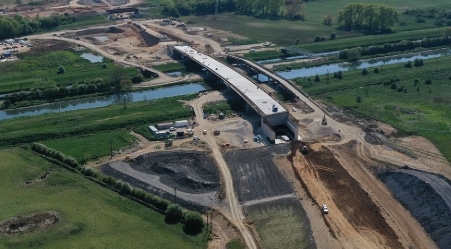
Bridges
Bridge construction and maintenance are integral to Lincolnshire’s infrastructure, supporting transport networks and connecting communities across natural barriers like rivers and valleys. Projects range from building iconic new structures to reinforcing or repairing historic bridges that are part of the county’s heritage.
This area demands a mix of innovation and precision, often involving complex engineering challenges and strict safety requirements. Bridge construction showcases teamwork, problem-solving, and creative design.
Working in bridge construction offers opportunities for those who enjoy complex challenges and contributing to the longevity of vital structures.
Working on bridges is perfect for those who take pride in overcoming engineering challenges and safeguarding historic or essential structures. It’s a sector that combines creativity with precision, offering roles for problem-solvers who thrive in high-stakes environments. Whether maintaining iconic landmarks or building innovative designs, bridge construction provides a sense of achievement and purpose.
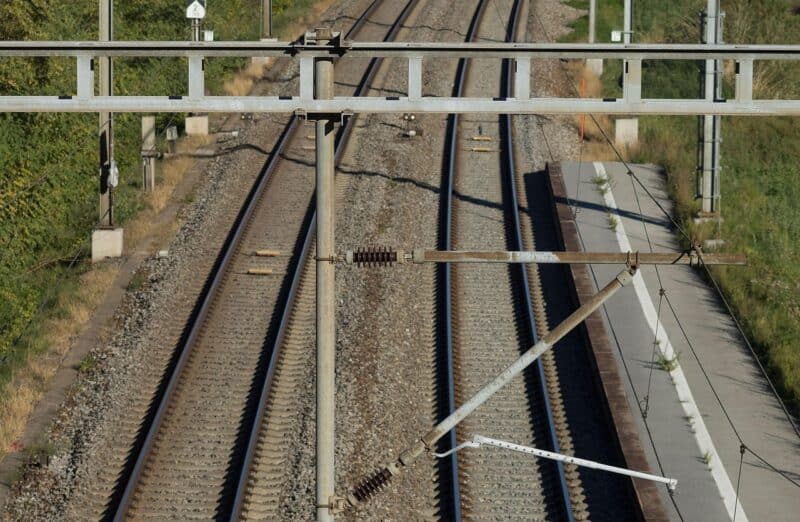
Railways
Railway construction supports Lincolnshire’s connectivity to other regions, facilitating passenger travel and freight transport. Projects include upgrading existing lines, constructing new railways, and ensuring stations and infrastructure meet modern standards and public expectations.
With a growing emphasis on sustainability, railway projects often incorporate electric or hybrid technologies to reduce carbon emissions. This dynamic area combines cutting-edge technology with traditional engineering expertise.
Working on railways is ideal for those passionate about transport innovation and large-scale logistics.
Railway construction suits individuals who enjoy combining technology with practical engineering solutions. Whether you’re developing modern rail systems or maintaining existing lines, this field offers a chance to drive connectivity and sustainability. It’s a rewarding choice for those keen to be part of transformative transport projects that benefit both people and businesses.

Utilities
Utility construction encompasses essential services like water, energy, and telecommunications, providing the backbone of Lincolnshire’s infrastructure. Projects may involve laying pipelines, constructing energy facilities, or expanding broadband networks, all crucial for supporting modern living and economic development.
With a focus on green energy and sustainable solutions, utility construction is a forward-thinking field offering impactful career opportunities.
Working in utilities is perfect for individuals interested in sustainability, technical problem-solving, and advancing essential services.
Utility construction appeals to those who want to make a tangible difference in communities, providing access to critical services like clean water, power, and connectivity. It’s a field that rewards innovation and resilience, with opportunities to work on projects that shape the future of sustainable living. Whether tackling energy challenges or expanding telecommunications, this sector is ideal for forward-thinkers dedicated to improving everyday life and conscious of environmental and sustainability issues.
Infrastructure construction is more than building physical structures; it’s about creating connections, enabling growth, and improving everyday life for the people of Lincolnshire. Whether you’re drawn to roads, bridges, railways, or utilities, this sector offers rewarding careers for a wide range of skills and interests.
Check out the different roles below

Management and coordination roles
Management and coordination roles oversee every aspect of infrastructure construction projects, ensuring smooth delivery from start to finish. These professionals develop project plans, manage resources, and coordinate teams to meet deadlines and budgets. Day-to-day tasks include conducting site visits, liaising with engineers and contractors, and solving challenges as they arise. They ensure safety protocols are upheld and communicate progress to stakeholders. Whether working on road expansions, bridge repairs, or utility installations, managers balance technical and logistical responsibilities to deliver successful outcomes that meet community needs.
Key roles: Construction manager, project manager, site supervisor, health and safety officer, operations coordinator.
Skills & attributes: Strategic thinking, leadership, problem-solving, organisational skills, communication, attention to detail, knowledge of health and safety regulations, ability to manage multiple stakeholders.
Scorecard
Salary Potential*
Flexible Hours
Flexible Location
Physicality
*based on a 40-hour working week
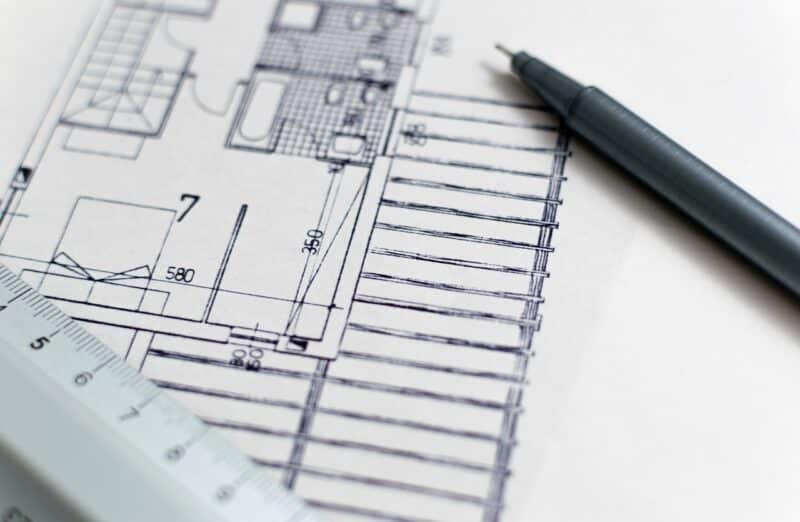
Engineering and design roles
Engineering and design roles create the blueprints and technical specifications that bring infrastructure projects to life. These professionals develop structural designs, conduct feasibility studies, and ensure compliance with regulations. Daily tasks include creating CAD models, performing calculations, and inspecting construction sites to monitor progress. Engineers work closely with project managers to adjust designs as needed and ensure sustainability goals are met. In Lincolnshire, they play a vital role in designing roads, bridges, rail systems, and utilities that are functional, durable, and efficient.
Key roles: Civil engineer, structural engineer, design engineer, CAD tTechnician, environmental Eengineer.
Skills & attributes: Technical expertise, creativity, analytical thinking, proficiency in design software, knowledge of building regulations, teamwork, and innovation.
Scorecard
Salary Potential*
Flexible Hours
Flexible Location
Physicality
*based on a 40-hour working week
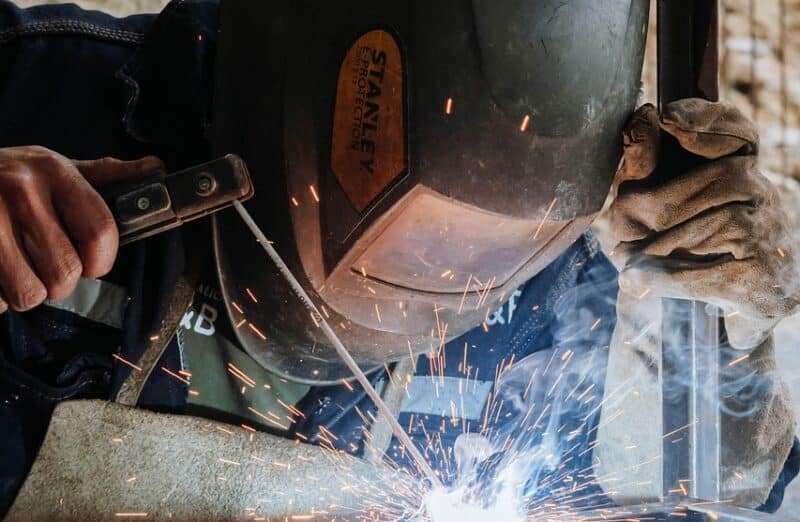
Trades and practical roles
Trades and practical roles are the hands-on backbone of infrastructure construction, transforming plans into reality. These skilled workers perform tasks such as operating heavy machinery, laying asphalt, welding steel, and installing pipelines. Their day-to-day involves interpreting technical drawings, following safety protocols, and working as part of a team to complete projects efficiently. These roles demand precision and resilience, often involving outdoor work in challenging conditions. From building roads to maintaining utilities, tradespeople are essential to every phase of construction.
Key roles: Asphalt layer, steelworker, electrician, pipeline fitter, mason, machine operator.
Skills & attributes: Manual dexterity, physical stamina, problem-solving, adherence to safety protocols, and precision in using tools and machinery.
Scorecard
Salary Potential*
Flexible Hours
Flexible Location
Physicality
*based on a 40-hour working week

Inspection and maintenance
Inspection and maintenance roles ensure that infrastructure remains safe, functional, and efficient. Specialists conduct routine inspections, identify areas needing repair, and oversee preventive maintenance. Daily tasks include examining structural integrity, testing systems like rail signals or drainage networks, and coordinating repair teams to minimise downtime. In Lincolnshire, these roles are critical for maintaining essential infrastructure like bridges, railways, and utilities. They require a keen eye for detail and the ability to act quickly to address potential issues before they escalate.
Key roles: Bridge inspector, maintenance technician, track inspector, drainage specialist, safety compliance officer.
Skills & attributes: Attention to detail, technical expertise, problem-solving, knowledge of regulations, and physical agility.
Scorecard
Salary Potential*
Flexible Hours
Flexible Location
Physicality
*based on a 40-hour working week

Support services
Support service roles are the organisational backbone of infrastructure construction, ensuring smooth operations behind the scenes. These professionals manage logistics, procure materials, and provide essential environmental assessments. Day-to-day activities include analysing project requirements, negotiating with suppliers, scheduling deliveries, and ensuring compliance with regulations. Their work ensures that resources are available on time and within budget, enabling construction teams to meet deadlines and quality standards. These roles are vital for keeping projects on track across Lincolnshire’s infrastructure sector.
Key roles: Surveyor, environmental planner, traffic coordinator, logistics manager, procurement specialist.
Skills & attributes: Strong organisational skills, communication, analytical thinking, IT proficiency, knowledge of environmental policies, and budgeting.
Scorecard
Salary Potential*
Flexible Hours
Flexible Location
Physicality
*based on a 40-hour working week
In addition to the technical, management and coordination roles, Infrastructure Construction relies on support functions like finance, procurement, IT HR and operations. For more information on these departments and the roles they offer, click here to explore further.
For information on local courses and qualifications that could support your career in construction, please click here.

